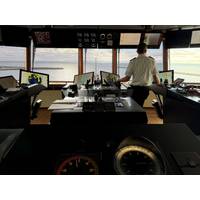
Polar Research Vessel Gets Nav System Refit
a consistent user experience with harmonised data, alerts and terminology—reducing distractions and supporting clear situational awareness. The INS integrates radar systems, precision autopilots and a redundant gyro compass system.The RRS Sir David Attenborough is owned by the Natural Environment Research Council and operated by the British Antarctic Survey for both scientific research and logistical support.Image copyright Jenna Plank – BA
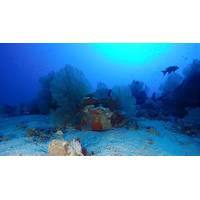
New Project to Assess Resilience of Mesophotic Coral Reefs
and oceanography from the University of Plymouth, with a core team also including experts in coral reef biodiversity from Imperial College London and specialists in numerical modelling at Plymouth Marine Laboratory (PML). They are being supported by a grant of £3.7million from the Natural Environment Research Council, part of UK Research and Innovation.Through their previous work in the Indian Ocean, researchers from the University of Plymouth uncovered the deepest known evidence of coral reef bleaching. However, there are still fundamental gaps in knowledge and understanding around the diversity
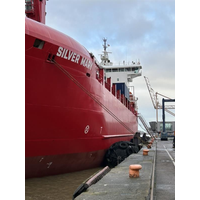
BAS Secures Antarctic Station Resupply for the Next Decade
the carbon footprint of Antarctic logistics. This season, all three National Antarctic Programmes are sharing the cost of the vessel, further reducing the environmental impact of the voyage. As part of a continuous drive towards “net zero” operational carbon emissions, the UK Natural Environment Research Council (NERC), part of UKRI, provided funding for BAS to procure low carbon sustainable fuel for the Silver Mary. This funding means that over 40% of the entire voyage will be done using sustainable fuel. The collaboration extends beyond vessel sharing. Teams have exchanged knowledge on
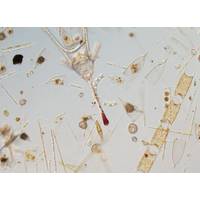
Harnessing Plankton Research Is Crucial to Inform Climate Models
community to treat modeling as a core tool in plankton ecology and in teaching activities – just as molecular biology revolutionized the science from the 1980s onward, so too must simulation modeling become embedded in plankton research. This work was supported by the UK’s Natural Environment Research Council as part of the “Simulating Plankton” project, contributing to the UN Decade of Ocean Science and the Digital Twins of the Ocean (DITTO) initiative
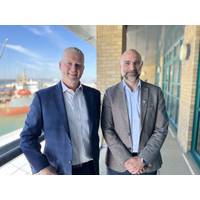
John Siddorn, CEO, National Oceanography Center
broadened its research over the years into prediction of storm surges and then sea level science more generally, as well as coastal and continental shelf sea oceanography and marine data management.In 1965 both the NIO and the Liverpool Tidal Institute became part of the then newly-formed Natural Environment Research Council (NERC). Both were brought together to form NERC’s Institute of Oceanographic Sciences (IOS) in the 1970s. Both former parts of IOS came back together in 2010 as part of NERC’s National Oceanography Centre (NOC).Today, NOC is based in Southampton and Liverpool and has quickly
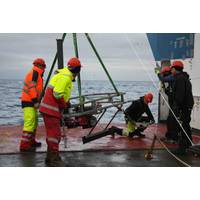
Ocean Robots Explore the Role of ‘Marine Snow’ in Carbon Storage
of water masses. The drifting float follows ocean currents, providing a dynamic perspective on sinking particles, while the gliders add another layer of insight, especially into small scale turbulence effects on the biological carbon pump."ReBELS is a four-year program funded by the Natural Environment Research Council (NERC) and builds on decades of research into ocean carbon storage. By deploying state-of-the-art robotic technology, the project is expected to provide new insights into one of the ocean’s most important climate-regulating mechanisms, improving our ability to predict and respond
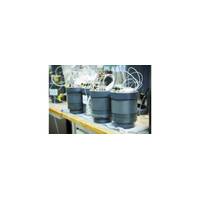
£4M Investment to Enhance Marine Robotics Research Capabilities
The UK’s National Oceanography Centre (NOC) has been awarded £4 million to bring next-generation sensing capabilities to its marine autonomous systems fleet to advance sustainable ocean science.The funding from the Natural Environment Research Council’s (NERC’s) Future Marine Research Infrastructure (FMRI) program will support three projects by leading scientists and engineers at NOC to develop advanced sensors targeting 10 different biogeochemical essential ocean variables, from physics to nutrients and carbon. These will be integrated into autonomous underwater vehicles
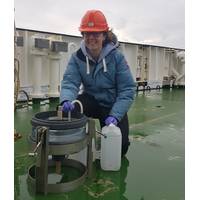
UK NOC's Study Challenges Role of Plankton in Ocean Carbon Storage Process
University of Southampton.The research was conducted as part of two major NOC-led initiatives, Controls over Ocean Mesopelagic Interior Carbon Storage (COMICS) and Carbon Uptake and Seasonal Traits in Antarctic Remineralisation Depth (CUSTARD). These projects were funded by the UK’s Natural Environment Research Council (NERC) and theEuropean Research Council grant Advancing Novel imaging Technologies and data analyses in order to understand Interior ocean Carbon Storage (ANTICS).Over two expeditions, each lasting more than five weeks at sea, NOC scientists and international colleagues studied the
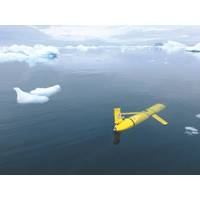
NOC Moves Forward with Funding for Subsea Sensor Tech
“Marine autonomy is a way to monitor more locations for longer than has previously been possible. As the platform technology advances so must the sensors available to them to make best use of new capabilities to deliver more data.”The funding, totalling £390,000, from the Natural Environment Research Council’s Future Marine Research Infrastructure (FMRI) programme, will cover sensor development, platform integration and testing.The sensors – conductivity, temperature, dissolved oxygen, pressure, pH and Eh – will all be solid-state, low-power and not require reagents,
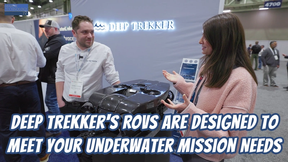
 December 2025
December 2025





